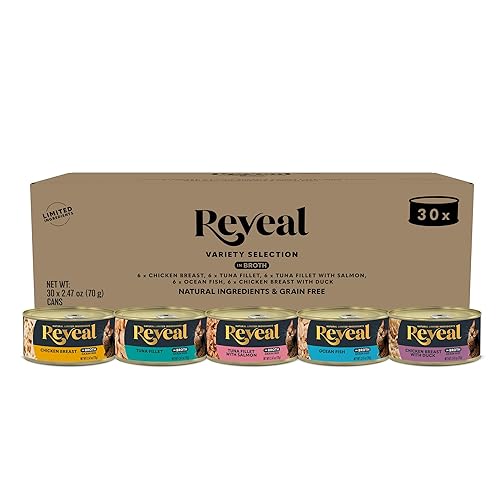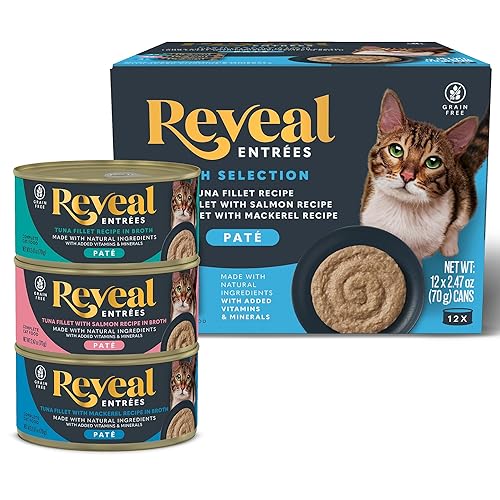What is cold wet food?
If you’re a cat lover, you know how important it is to keep your feline friend happy and well-fed. But have you ever wondered if your cat will enjoy eating cold wet food? Let’s dive into the world of cold wet food and find out!
Cold wet food refers to canned cat food that has been chilled in the refrigerator or kept at a cool temperature. It’s typically made with a combination of meat, fish, and other ingredients that are gentle on your cat’s stomach.
One of the benefits of serving cold wet food is that it can enhance the taste and aroma for your cat. Cooling the food can help intensify the smell, making it more enticing for your kitty. Just like humans, cats have taste preferences. They may have particular preferences for the temperature of their food as well.
But does that mean all cats will enjoy cold wet food? Well, it depends on your cat’s individual taste preferences. While some cats may happily gobble up chilled meals, others may prefer their food at room temperature or slightly warm. It’s all about getting to know your cat’s culinary preferences!
If you want to introduce cold wet food to your cat, start by offering a small portion alongside their regular food. Observe their reaction and see if they enjoy the change in temperature. Remember, always consult with your veterinarian if you have any concerns or questions about your cat’s diet.
To conclude, cold wet food can be a delightful option to add variety to your cat’s meals. Some cats may enjoy the chilled sensation on their tongues, while others might prefer their food at a different temperature. Remember to assess your cat’s preferences and consult with your veterinarian to ensure their diet is balanced and nutritious.
Do cats like cold food?
As a cat lover, you may wonder if your furry friend would enjoy eating cold wet food. Well, every cat is different, and their taste preferences can vary. But let’s explore whether cats generally like cold food.
Cats are known for their keen senses, especially their sense of smell. Cooling the food can intensify the aroma, making it more enticing for your feline friend. It’s like when you have a cold drink on a hot day – it’s refreshing and enhances the taste. The same principle applies to cats and their food.
Some cats may actually prefer their wet food chilled. The temperature change can bring out the delicious flavors and make mealtime more enjoyable. Plus, cold food can provide relief to cats during hot weather. It’s like having a cool treat to beat the heat!
However, it’s important to remember that not all cats will like cold food. Just like humans, they have their preferences. Some cats may not be fond of the temperature change or the different texture that chilled wet food may have. Each cat is unique, and it’s all about finding what they like best.
If you want to introduce your cat to cold wet food, start by offering a small portion alongside their regular room temperature food. Observe their reaction and see if they show interest or enjoyment. If your furry friend is not too keen on the cold food, don’t worry! There are plenty of other ways to keep their meals exciting and varied.
To ensure a balanced and nutritious diet, consult with your veterinarian. They can provide guidance on suitable food options for your cat, including the ideal temperature. Remember, the most important thing is to prioritize your cat’s health and happiness.
Can cats digest cold food?
Cats are amazing creatures with unique digestive systems. You may be wondering, can cats digest cold food? The answer is yes, they can! Cats have evolved to digest a wide range of temperatures when it comes to their food.
Here’s why cats can digest cold food:
- Digestive Adaptations: Cats have a short digestive tract that is designed to efficiently process their food. This means that their body can break down and absorb the nutrients from cold food just as effectively as warm food.
- Natural Preferences: In the wild, cats often eat their prey shortly after catching it. This means that they are used to consuming both warm and cold food. Their digestive system has adapted to handle these temperature variations.
- Efficient Metabolism: Cats have a high metabolic rate, which helps them efficiently process food. Whether it’s cold or warm, their bodies are adept at extracting the necessary nutrients to meet their energy needs.
- Preference for Freshness: Cats are known for their natural inclination towards fresh food. Cool or cold wet food can provide a refreshing and satisfying experience for them, especially during hot weather.
While cats can digest cold food, it’s important to note that not all cats may enjoy it. Cats have individual preferences, and some may prefer their food at room temperature. It’s best to observe your cat’s reaction when introducing cold wet food and adjust accordingly.
As a cat lover, your priority is to provide a balanced and nutritious diet for your furry friend. Consulting with a veterinarian is always a good idea to ensure you are meeting your cat’s dietary needs.
Remember, cats are individuals with unique tastes and preferences. Whether your cat enjoys cold food or prefers it a bit warmer, what matters most is that they are happy and healthy.
Now that you know cats can digest cold food, feel free to experiment with different temperatures and see what your feline friend prefers. Keep a close eye on their reaction and consult with your veterinarian for guidance. Making mealtime enjoyable and satisfying for your cat is a great way to strengthen the bond between you and your beloved furry companion.
Benefits of feeding cats cold wet food
Feeding your feline friend cold wet food can offer several benefits that are worth considering. Here are a few reasons why cats enjoy and benefit from this type of food:
- Hydration: Cats are notorious for not drinking enough water, which can lead to dehydration and urinary tract issues. Cold wet food has a higher water content compared to dry food, helping to keep your furry friend hydrated and promoting better kidney function.
- Palatability: Cats are natural carnivores, and their taste buds are finely tuned to appreciate the flavors and textures of moist food. Cold wet food tends to have a stronger aroma and can be more enticing for your feline companion, encouraging them to eat and enjoy their meals.
- Digestion: Cold wet food can be easier to digest for cats due to its softer texture and higher moisture content. This can be especially beneficial for cats with dental issues, as they may have trouble chewing on dry kibble.
- Weight Management: If your cat needs to lose weight or maintain a healthy weight, cold wet food can be a good option. It generally has fewer calories per serving compared to dry food, allowing you to control their calorie intake more easily.
- Urinary Health: The increased water content in cold wet food can help dilute your cat’s urine, reducing the likelihood of crystal formation and the risk of urinary tract diseases.
It’s important to note that not all cats may enjoy cold wet food, as individual preferences can vary. When introducing this type of food, observe your cat’s reaction and adjust accordingly. Consulting with a veterinarian will ensure they are receiving a balanced and nutritious diet.
Conclusion
Feeding your cat cold wet food can have numerous benefits for their overall health and well-being. It helps to keep them hydrated, supports better kidney function, and is more appealing to their taste buds. Additionally, cold wet food is easier for your cat to digest, aids in weight management, and contributes to urinary health.
While cold wet food may not be enjoyed by every cat, it’s worth observing their reaction and consulting with your veterinarian to ensure a balanced and nutritious diet. Remember, every cat is unique, and their dietary preferences may vary.
By incorporating cold wet food into your cat’s diet, you are providing them with a delicious and nourishing meal option. The added moisture content helps to prevent dehydration, which is especially important for cats who may not drink enough water on their own.
So, consider adding cold wet food to your cat’s meal rotation and watch them enjoy the benefits it brings to their health and happiness.
Frequently Asked Questions
Q: What are the benefits of feeding cats cold wet food?
A: Feeding cats cold wet food can help keep them hydrated, improve kidney function, enhance palatability, aid digestion, manage weight, and promote urinary health. However, individual cats may have different preferences, so it’s important to observe their reaction and consult with a veterinarian for a balanced diet.
Q: How does cold wet food benefit a cat’s hydration?
A: Cold wet food has a high moisture content, which helps cats stay hydrated and prevents dehydration, especially in cats who may not drink enough water on their own.
Q: How does cold wet food promote better kidney function?
A: Cold wet food provides additional hydration, which supports the kidneys’ function in filtering waste products from the body. This can help prevent kidney issues and promote overall kidney health.
Q: Why is cold wet food more palatable for cats?
A: Cats generally prefer the taste, aroma, and texture of cold wet food over dry food. The enhanced flavor and smell can encourage them to eat more, ensuring they receive the necessary nutrients from their diet.
Q: How does cold wet food aid in digestion?
A: Cold wet food is easier to digest compared to dry food due to its higher moisture content. This can be beneficial for cats with sensitive stomachs, digestive issues, or dental problems.
Q: Can feeding cats cold wet food help with weight management?
A: Yes, cold wet food can aid in weight management. It tends to have fewer calories and is bulkier, which can help cats feel fuller while consuming fewer calories, making it a viable option for overweight or obese cats.
Q: Does cold wet food contribute to urinary health?
A: Cold wet food helps promote urinary health by increasing fluid intake, diluting urine, and reducing the chances of crystal formation or urinary tract issues in cats. It can be especially beneficial for cats prone to urinary problems.
Q: What should I do if my cat doesn’t enjoy cold wet food?
A: Not all cats may enjoy cold wet food. If your cat doesn’t show interest or refuses to eat it, consider trying different flavors or textures. However, if the issue persists, consult with a veterinarian to ensure your cat receives a balanced and nutritious diet.
Q: How can I ensure a balanced and nutritious diet for my cat?
A: To ensure a balanced and nutritious diet for your cat, consult with a veterinarian. They can provide recommendations based on your cat’s specific needs, including portion sizes, frequency of feeding, and appropriate food choices. Regular veterinary check-ups are also essential to monitor your cat’s overall health and dietary requirements.













